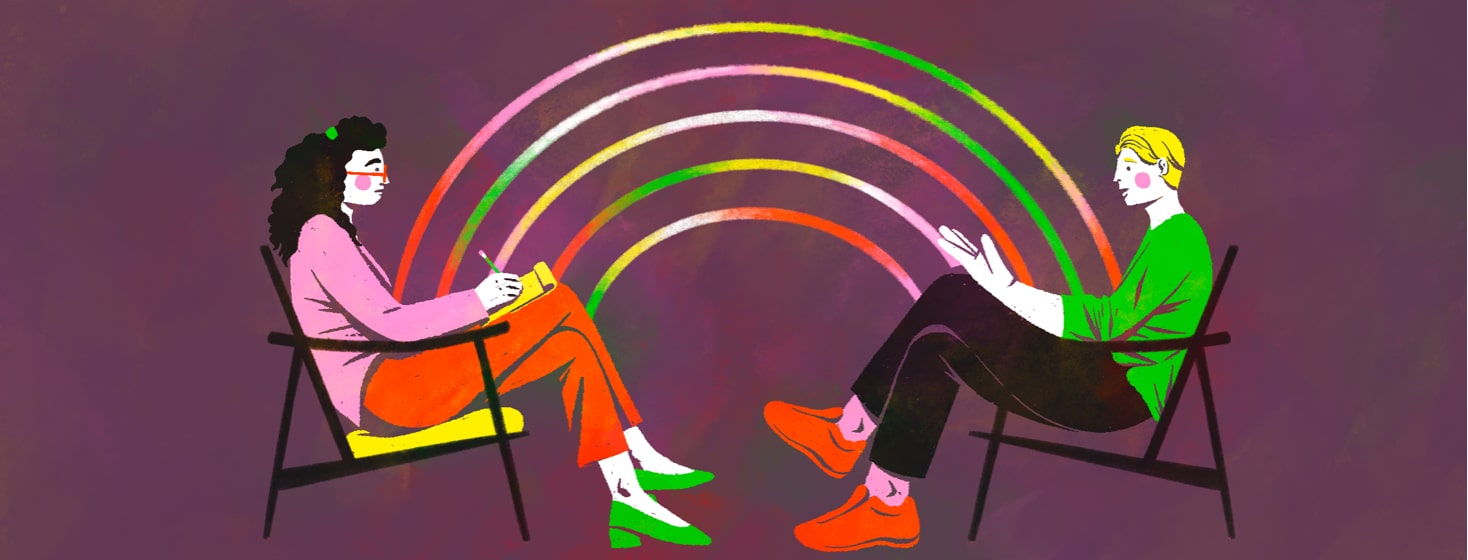My RA Care Team Includes My Therapist
When most rheumatoid arthritis (RA) patients think about their disease management care team, I imagine they first think about their rheumatologist, followed maybe by a physical therapist, perhaps a chiropractor, a primary care physician, a pharmacist, and maybe even a specific surgeon.
I want to add to the conversation by saying that I have all of the above providers, and they’re mostly great and helpful. But, there’s a critical part of my RA care team missing from the list above - my talk therapist.
You read that right.
A talk therapist is part of my care team
My therapist is a critical part of my RA team. You might feel confused by this statement - how is it possible that a social worker or psychologist could be instrumental in how I manage my life with an autoimmune disease?
Well, in my opinion, it’s pretty simple, really. Having rheumatoid arthritis has significantly impacted my body - physically, mentally, and emotionally. I have providers that tend to my physical body, my joints, pains, and my mobility, so why wouldn’t I also have a provider that looks after my mental and emotional health?
I’ve seen a number of mental health providers over the decade and a half, but I’ve been with my current talk therapist for 8 years now. As someone who not so coincidentally lives with an autoimmune disease herself, I’ve found her insight and guidance to be extremely valuable.
How therapy helps when it comes to RA
How does a therapist help when it comes to RA? In my opinion, there are some unique ways in which chronic illness/invisible illness/autoimmune disease (call it whatever you'd like) changes us.
It changes how we think, how we feel, how we process the world and the events and moments around us. It impacts the ways in which we set goals, evaluate achievements, earn praise and receive criticism. It makes us extra tough in some spots and more vulnerable in others.
These are all things I've identified and discussed in depth at the probing of my therapist. In a safe space, alone without judging eyes or ears, I've been able to talk through a lot of the narrative that used to run in my head without anyone available to rationalize it. I've learned that it's truly exhausting to live in my own body sometimes, and this is a concept that felt very difficult to explain before my therapist helped me find the language and sort through my feelings surrounding it.
A source of validation and support
Most importantly, my therapist has validated me. She has also encouraged me. She has even challenged me - specifically when it comes to the way I view things, how I handle obstacles and setbacks, and the beliefs I've held about myself at any given time.
In truth, I feel incredibly lucky to have such a long-running relationship with a mental health professional who has seen me through the testing and appointments leading up to my RA diagnosis, the aftermath of the diagnosis itself, and every single chapter along the way as I've navigated treatment and management over the last few years.
Do you work with a therapist? Have you noticed their support improving your life with RA? Would you consider them part of your care team? I'd love to hear your thoughts below.

Join the conversation